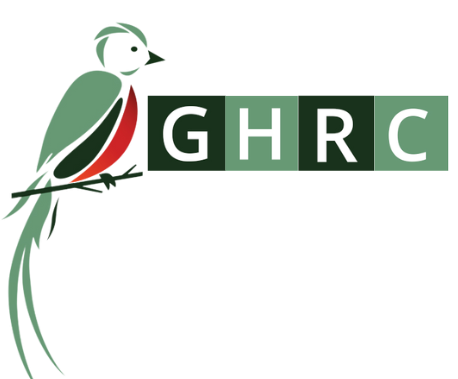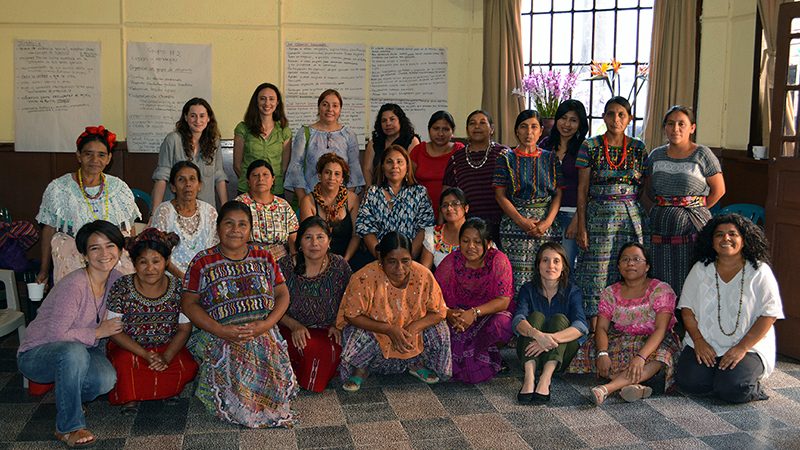This article is from the Winter 2014-2015 issue of El Quetzal (#18)

On October 29, Bárbara Díaz Surin, a Kaqchiquel leader and mother of seven, was arrested in her community in San Juan Sacatepéquez. The municipality had been under martial law for over a month in response to a violent incident in the community of Los Pajoques in late September that left eight people dead.
At least 40 police officers were involved in Díaz’ arrest and the force used left marks on her arms.
The following day, Díaz was charged with the murder of a man in April 2014. According to observers present at the arraignment, there was no concrete evidence against her; the accusation was denounced immediately as a trumped-up charge to silence a local leader.
Unfortunately, Diaz’ situation is not unique. The arrest of community leaders during states of “exception” (ie, martial law), for acts allegedly committed months or even years prior, has become a pattern in Guatemala. More often than not, those facing charges are community leaders in movements against a national or transnational company operating in the area.
Díaz herself had been active in the opposition to the Cementos Progreso cement company in San Juan, and had also participated in recent actions to denounce militarization.
In fact, just six days before her arrest, Díaz marched with hundreds of women from twelve communities in the municipality of San Juan in Guatemala City, demanding that the government lift the “state of prevention.” The women also appeared before the Human Rights Ombudsmen (PDH) to report the abuses committed against them by police and members of the army during the state of prevention.
The state of prevention was originally declared by the Guatemalan government on September 22, for a period of 15 days, and ultimately lasted about 45 days. According to affected communities, this heavy-handed response, which limited resident’s mobility and ability to conduct meetings, among other restrictions, contrasted sharply with the police’s complete inaction as the conflict unfolded in Los Pajoques. Many believe that, had the police responded to urgent calls from community members during the crisis, they could have saved the lives of the eight who perished.
GHRC visited three of the affected communities during the state of prevention as part of a fact-finding mission. In consultations with residents, we heard that members of the army and police were occupying private properties without authorization and verbally harassing the women. Many community members noted that their economic livelihoods – including the ability to tend to their crops – had been severely limited. The power of community authorities had also been undercut, along with residents’ ability to carry out important religious ceremonies. All of this had generated an atmosphere of mistrust and uncertainty among the population.
San Juan Sacatepéquez, less than an hour away from Guatemala City, is originally known for the production of flowers and wood furniture, both for local consumption and exportation. However, towards the end of 2006, the area became known for something else: the peaceful resistance of twelve communities to the construction of a cement factory. Communities considered the government’s decision to grant the company a license an abuse, as residents were neither informed nor consulted about the project beforehand.
Those on the front lines of the communities’ protests against the company have, for years, experienced aggression and defamation campaigns; a number of leaders have also been arrested after incidents that suggest attempts to provoke and criminalize the opposition movement. Judicial authorities have focused solely on the complaints against the community leaders, while failing to act on the objections raised by residents about the abuses they have suffered at the hands of cement factory workers. Over time, one of the largest social costs has been the internal division of the communities.
What has happened in San Juan Sacatepéquez is not an isolated occurrence. Similar incidents unfolded in the department of Huehuetenango, particularly in the municipalities of Barillas and Santa Eulalia due to the construction of a dam; in San José del Golfo, San Pedro Ayampuc and Nacahuil in the department of Guatemala due to a gold mine; in San Rafael Las Flores in the department of Santa Rosa due to a silver mine; and in other areas throughout the country.
Time and again, the Guatemalan government has neglected its legal obligation to consult with communities before granting a license for a mine or dam, and has ignored the adverse affects these projects will have on the environment, water sources and community wellbeing.
For community leaders like Bárbara Díaz, actively opposing these projects can have tremendous impacts on their lives and those of their families. Martial law was lifted in San Juan shortly after her arrest, but Díaz, who maintains her innocence, remained detained throughout the holiday season. Her first hearing was set for January 8, 2015, but has been postponed until mid February.


